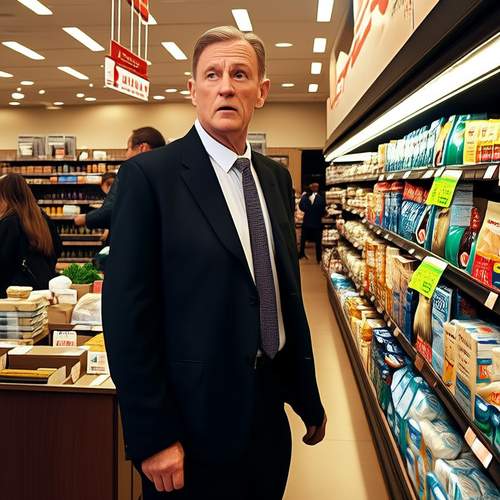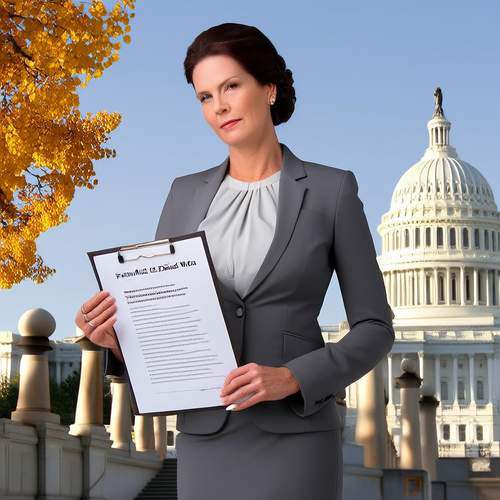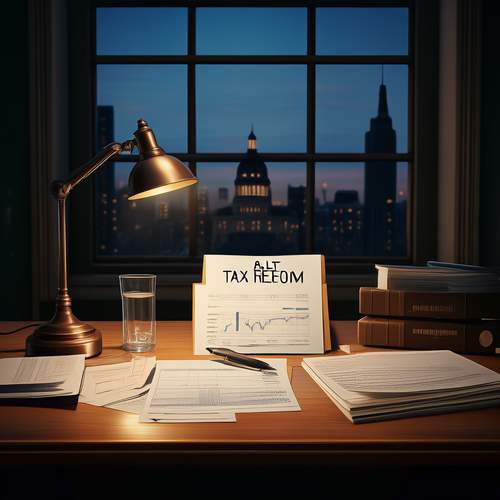In the ever-evolving landscape of retail, Target has always been a prominent player, known for its innovative strategies and commitment to a diverse and inclusive environment. However, the past few months have been a tumultuous journey for the company, marred by a series of challenges that have shaken its foundation and tested its resilience.
The Backlash from DEI Reversal
Target was already facing a very public revolt from some of its most loyal customers. The company's decision to reverse its stance on diversity, equity, and inclusion (DEI) programs has been a significant catalyst for this unrest. On January 24, just days into Donald Trump's presidency, Target announced a series of changes that included eliminating hiring goals for minority employees and ending an executive committee focused on racial justice. This move was met with widespread criticism and disappointment from supporters of diversity and inclusion policies, who felt blindsided by the company's sudden shift.
Target had long been a champion of DEI initiatives and LGBTQ rights, building a reputation as a progressive employer. The decision to backtrack on these commitments was seen as a betrayal by many, including Anne and Lucy Dayton, the daughters of one of Target's co-founders. The backlash was swift and severe, with customers taking to social media to voice their disapproval and organize boycotts. One of the most notable boycotts was led by Rev. Jamal Bryant, a prominent Atlanta-area megachurch pastor, who spearheaded a 40-day consumer boycott during Lent. Protestors picketed outside Target headquarters in Minneapolis, and other Black leaders, such as Rev. Al Sharpton, lent their support to the cause.
Target's reversal on DEI policies was particularly damaging because it had gone further in its DEI efforts than many of its competitors. The company had a more progressive base of customers who were deeply invested in its commitment to diversity and inclusion. The decision to roll back these initiatives not only alienated its loyal customers but also put it under more scrutiny than other companies that had made similar changes.
The Impact of Tariffs
As if the backlash from the DEI reversal wasn't enough, Target is now grappling with the additional challenge of tariffs. President Donald Trump's tariffs have pushed up costs for the company, further complicating its financial situation. Target's sales at stores open for at least a year tumbled 3.8% last quarter, with fewer customers visiting and spending less when they shopped. The company also cut its financial outlook, expecting sales to decline by low single-digits this year.
Target's CEO, Brian Cornell, acknowledged the various headwinds the company faced this quarter, including five consecutive months of declining consumer confidence, uncertainty regarding the impact of potential tariffs, and the reaction to the updates on DEI. Cornell warned of "massive potential costs" from tariffs but said the retailer could offset them by diversifying suppliers, adjusting products, and, if necessary, hiking prices. "We have many levers to use in mitigating the impact of tariffs and price is the very last resort," he said.
The impact of tariffs on Target is particularly significant because the company stocks a higher proportion of nonessential merchandise compared to its competitors, such as Walmart and Costco. More than half of Target's merchandise is discretionary and at risk as consumers rein in spending. Additionally, around 50% of Target's products are imported from overseas, including an estimated 25% from China. This leaves Target in a "challenging position," according to Steven Shemesh, an analyst at RBC Capital Markets.
The Road Ahead
Despite the challenges, Target is taking steps to address its issues and chart a path forward. The company announced the establishment of a multi-year "Enterprise Acceleration Office" to speed up growth plans and reshuffled its executive team. Cornell emphasized that Target's culture and commitment to staff have not changed, acknowledging the uncertainty that silence from the company had created. "I recognize that silence from us has created uncertainty, so I want to be very clear: We are still the Target you know and believe in," he said in a recent email to staff.
The road ahead for Target is undoubtedly fraught with challenges. The company must navigate the delicate balance between maintaining its commitment to diversity and inclusion and addressing the financial pressures brought on by tariffs. It must also work to rebuild trust with its customers and restore its reputation as a progressive and inclusive retailer.
The situation with Target serves as a cautionary tale for other companies. In an era where social and political issues are increasingly intertwined with business practices, companies must be mindful of the impact their decisions have on their customers and communities. Target's experience highlights the importance of transparency, communication, and a genuine commitment to the values that define a company's identity.
As Target moves forward, it will need to demonstrate its dedication to diversity and inclusion in tangible ways. This may involve re-evaluating its DEI initiatives and finding new ways to support minority employees and promote racial justice. At the same time, it must navigate the financial challenges posed by tariffs and a slowing consumer economy. This may require innovative strategies to mitigate costs and maintain profitability without compromising the customer experience.
Target's recent struggles underscore the complexities of modern retail. The company's reversal on DEI policies and the impact of tariffs have created a perfect storm of challenges that will test its ability to adapt and thrive. As Target works to address these issues and chart a path forward, it will need to rely on its core values, its commitment to its customers, and its ability to innovate and evolve in a rapidly changing retail landscape.




















